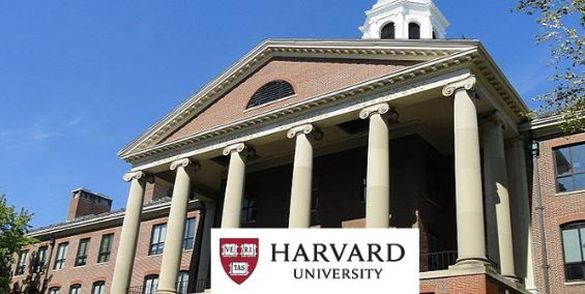
Harvard University is pleased to announce free online course named as “The Architectural Imagination”. The aim, of course, is to learn fundamental principles of architecture — as an academic subject or a professional career.
In this course, you will learn how to “read” architecture as a cultural expression as well as a technical achievement. Vivid analyses of exemplary buildings from a wide range of historical contexts, coupled with hands-on exercises in drawing and modeling, bring you close to the work of an actual architect or historian.The course will start on 28 February 2017.
Course At A Glance
- Length: 10 weeks
- Effort: 3-5 hours per week
- Subject: Architecture
- Institution: Harvard University
- Languages: English
- Price: Free
- Certificate Available: Yes
- Session: The course will start on 28 February 2017
Providers Details
- About University: Established in 1636, Harvard is the oldest institution of higher education in the United States. The University, which is based in Cambridge and Boston, Massachusetts, has an enrollment of over 20,000-degree candidates, including undergraduate, graduate, and professional students. Harvard has more than 360,000 alumni around the world.
- The Aim of University: The Harvard Library advances scholarship and teaching by committing itself to the creation, application, preservation and dissemination of knowledge.Harvard University is devoted to excellence in teaching, learning, and research, and to developing leaders in many disciplines who make a difference globally. Harvard faculty are engaged with teaching and research to push the boundaries of human knowledge. The University has twelve degree-granting Schools in addition to the Radcliffe Institute for Advanced Study.
Requirements
There are no prerequisites to be entered in this free online course.
About This Course
- Benefits: Over the course of ten modules, you will examine some of the history’s most important examples that show how architecture engages, mediates, and expresses a culture’s complex aspirations. The language of the course is English.
- Importance of the subject in today’s scenario: Architecture is one of the most complexly negotiated and globally recognized cultural practices, both as an academic subject and a professional career. Its production involves all of the technical, aesthetic, political, and economic issues at play within a given society.
How to Join This Course
You can register yourself through the given link:
Course Format
Part I: Form and History
Module 1: The Architectural Imagination: An Introduction
Module 2: Reading Architecture: Column and Wall
Module 3: Hegel and Architectural History
Module 4: Aldo Rossi and Typology
Part II: The Technology Effect
Module 5: The Crystal Palace: Infrastructure and Detail
Module 6: The Dialectics of Glass and Steel
Module 7: Technology Tamed: Le Corbusier’s Machines for Living
Part III: Representation and Context
Module 8: Drawing Utopia: Visionary Architecture of the 18th Century
Module 9: The Pompidou Center in the City of Paris
Module 10: Presenting the Unrepresentable .
Why Take This Course
- Advantage of Course: After completing this free online course, you will learn about what we call architecture’s power of representation, and see how architecture has a particular capacity to produce collective meaning and memories.
- Certificate: You can pursue a Verified Certificate to highlight the knowledge and skills you gain ($99). You can add the certificate to your CV or resume, or post it directly on LinkedIn
Learning Outcomes
- How to read, analyze, and understand different forms of architectural representation
- Social and historical contexts behind major works of architecture
- Basic principles to produce your own architectural drawings and models
- Pertinent content for academic study or a professional career as an architect
Instructors
- K. Michael Hays: Michael Hays is Eliot Noyes Professor of Architectural Theory at the Harvard University Graduate School of Design and Associate Dean for Academic Affairs, as well as Interim Chair for the Department of Architecture.
- Erika Naginski: She is Professor of Architectural History. Her research interests include Baroque and Enlightenment architecture, early modern aesthetic philosophy, theories of public space, and the critical traditions of architectural history.
- Antoine Picon: Antoine Picon is the G. Ware Travelstead Professor of the History of Architecture and Technology and Director of Research at the GSD. He teaches courses in the history and theory of architecture and technology.
Suggested Reading
Basic knowledge in Architecture field
Conclusion
- The final set of modules confronts architecture’s complex relationship to its social and historical contexts and its audiences, achievements, and aspirations. After completing this course you will understand the architecture’s power of representation, and see how architecture has a particular capacity to produce collective meaning and memories.
- You can receive an instructor-signed certificate with the institution’s logo to verify your achievement and increase your job prospects.
Detailed Information:
Know more about the course by the given link:
https://www.edx.org/course/architectural-imagination-harvardx-gsd1x#!

